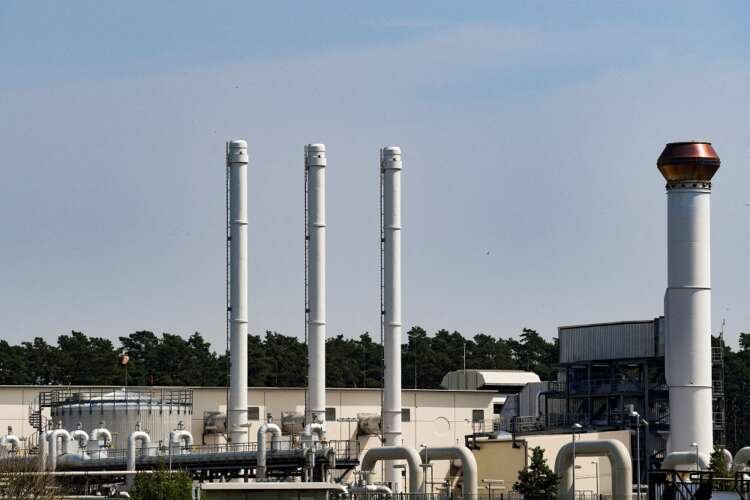As German gas rationing looms, industry begs exemptions


By Tom Käckenhoff, Vera Eckert and Christoph Steitz
By Tom Käckenhoff, Vera Eckert and Christoph Steitz
DUESSELDORF/FRANKFURT, Germany (Reuters) -Germany’s network regulator, which would be in charge of gas rationing in the event of a supply emergency, has received scores of exemption requests from across industry, reflecting fears of potential production cuts and subsequent losses.
Germany is at phase two of a three-stage emergency plan following a reduction in gas flows from Russia, its main supplier, a major problem for industry, which accounts for a quarter of the country’s gas demand.
Chancellor Olaf Scholz said on Tuesday gas prices, which have soared due to uncertainty over Russian supplies, would not come down again quickly as governments around the world see the fuel as a bridge on their decarbonisation path.
While industry and regulators are trying to work out a plan for what happens at phase three – when rationing kicks in – individual sectors have started to ask for leniency and some companies have begun changing work practices https://www.reuters.com/article/ukraine-crisis-germany-energy-autos-idAFL8N2ZI0LQ to reduce energy use.
“An application procedure is not foreseen. The Federal Network Agency continues to receive numerous letters from virtually all sectors,” a spokesperson for Germany’s network regulator (BNetzA) said in e-mailed statements.
“Blanket exemptions are not provided for in the current law,” the spokesperson said, adding the regulator maintained “a constant dialogue” with industry to prepare for a gas supply emergency.
Big gas consuming sectors that have raised their voices publicly are the glass, steel, pharmaceutical and chemical industries, where gas is used to make everything from plastics and fertiliser to fibres and solvents.
Around 120 of BNetzA’s staff are working on crisis prevention and management.
Russia’s Gazprom is supplying 20% of the usual capacity of the Nord Stream 1 pipeline, which normally carries around a third of Russian gas exports to Europe, in an energy stand-off rooted in Moscow’s invasion of Ukraine.
The regulator has started to collect data from Germany’s largest industrial players, an effort it said had drawn a “very high” level of participation of 2,750 companies.
BNetzA has said it is trying to put together a shutdown list for industry based on six criteria https://www.reuters.com/article/ukraine-crisis-germany-gas-idUKL5N2X94QM, which include a company’s size, economic damage as well as costs and how long it would take to restart specific facilities.
“Everyone is now clear about how serious the situation is,” said Alexander Theusner of law firm Roedl & Partner, who has been advising clients to draw up the letters.
When it comes to the crunch, private households will have some but not all-encompassing priority over industry, while hospitals, care facilities and other public sector institutions with special needs would be last to be disrupted.
(Reporting by Tom Kaeckenhoff, Vera Eckert and Christoph Steitz; Additional reporting by Andreas Rinke; Editing by Barbara Lewis, Mark Potter and Emelia Sithole-Matarise)
Exemption requests are formal applications made by companies or sectors seeking relief from regulations or restrictions, often due to their critical role in the economy or potential negative impacts on production.
A network regulator oversees the operation and management of essential services, ensuring compliance with laws and regulations, and addressing issues related to supply and demand within the energy sector.
Energy prices reflect the cost of energy resources and can significantly impact economic stability, influencing production costs, consumer spending, and overall economic growth.
Explore more articles in the Top Stories category











